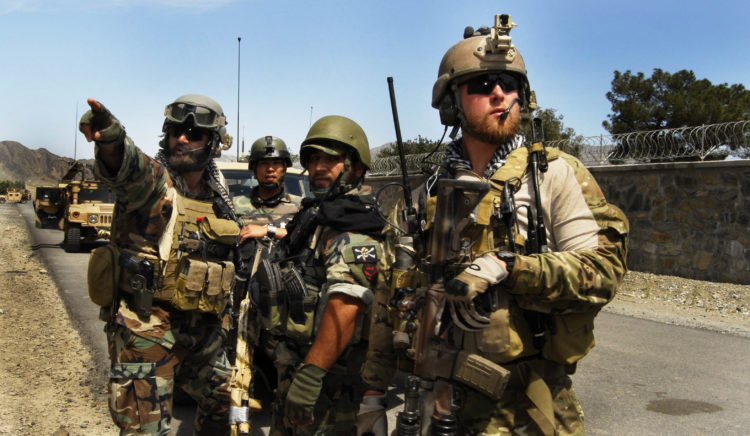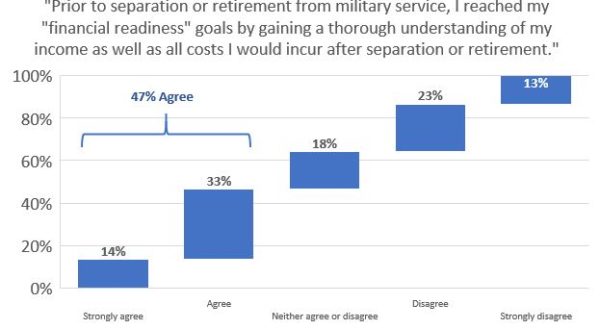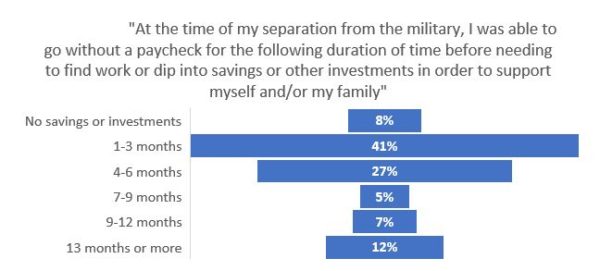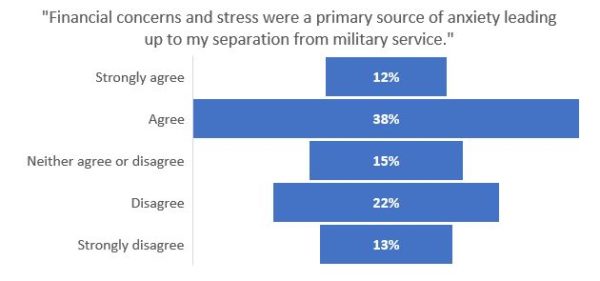Special Operations Forces are the most highly trained members of the military, both in the United States and among our allies. They are also the most prepared troops to tackle any job, anywhere, anytime… unless it has to do with their own personal affairs. SOF veterans are kind of like the best car mechanics in town. And usually, their cars are in most need of repair.
Last week, we reported of a “SOF For Life” survey conducted and developed by the Global SOF Foundation and the Honor Foundation. In it, we learned that the majority of Special Operations veterans are not properly prepared for their transition to the civilian workforce nor are they receiving the support needed to transition smoothly.
The Global SOF Foundation is a non-profit professional organization for Special Operations Forces and the global moniker is true. They have members across the world and their events are extremely well attended worldwide. The Honor Foundation is an organization founded for Navy SEALs and the Special Operations community whose stated goal is to advance the career goals of this SEAL community for life.
The “SOF For Life” survey began in the late summer of 2016 and up to the present time they have had over 550 responses from SOF and SOF support personnel who have already transitioned from active duty, whether through retirement or separation.
In Part 1, we looked at the basic issues as well as some of the medical issues that the separating veterans will have to deal with. And it is worth repeating that while 27 percent of the SOF vets reported having no disability status, that may be because they haven’t been screened yet for a service-related disability.
And it is important to note, SOF vets should document everything. Many of the issues as a result of service-connected injuries won’t show themselves a year or two after service, but 5-10 and sometimes much farther down the road. Like the Ghost of Christmas Past, I was told, the problems of the physical aspect of SOF come home to roost.
Financial Issues: After speaking with a couple of members of the project, Financial Issues are really hurting troops preparing for the transition.
In the survey, the veterans as you can see in the charts below are not well prepared financially for separation transition.
This, among other issues we learned from Dr. Keenan Yoho, who has put a ton of work into this project is probably just the tip of the iceberg. Yoho is the VP of the Global SOF Foundation, he taught at the Navy’s Post-Graduate School for several years. And while he is admittedly “not a SOF guy”, he has been around enough to see the trends and his work on this project have played that out.
He’s become friends with many of his former students and said, “a common issue, especially among the SOF guys, is that they are deployed, deployed, deployed almost constantly. And they are used to drawing on a variety of pays, hazardous duty pay, combat pay, bonuses…etc. And because of what’s happening in their lives, they spend it.”
Yoho explained further, “That’s not saying anything negative here, you have to remember because of the nature of their job, your next day could be your last day. Most of the guys aren’t looking at the future, which in any other aspects of their jobs would be preposterous for them.”
“Looking at something five years down the road? That is an eternity for these guys.”
Dr. Yoho also thought from dealing with senior officers and as observing from someone outside the community but close enough to see, he believes the command’s SOF For Life mantra, as basically lip service. “None of those commanders are incentivized …and frankly most of them just down care about the future of the men under their command. Because let’s face it….once a guy retires or separates he’s gone.”
But that one aspect is beginning to change, Dr. Yoho spoke with one former SEAL who is now moving high up the chain and he told Yoho that the financial side of a SOF operator’s life is now just the same as a readiness issue.
Dr. Yoho spoke about how a SOF operator’s medical expenses later in life can be a huge financial burden as well.
So what Global SOF and the Honor Foundation are trying to do in a nutshell is to do an assessment to see where the units and the people are. The second thing is to make people aware of the shortcomings of the system and the third thing is to effect change.
And SOF operators are and will always be still connected to the active force. Many operators upon separation, go to work for the Command as civilians, go to work for the multitude of defense contractors and many stay in the areas where they worked and keep close contact with the operators still in the unit.
One common misconception, especially among the senior officers, is that they fully expect to enter the civilian workforce and immediately make the same amount of money that they’re earning in the military. The civilian workforce is very competitive and unfortunately, most career military NCOs and Officers have really little to no civilian workforce experience.
But there is help out there on the horizon right now. At the Global SOF Foundation Symposium in Tampa, FL from February 19-21, there will be a short “SOF For Life” Transition Seminar from 9 a.m. – 5 p.m. on the 19th in the Stirling Ballroom. East.
But for SOF Operators that are beginning their transition preparation early, The Honor Foundation runs a 12-week program created by Joe Musselman, originally for the SEAL community but now it is open to all SOF personnel. Right now there are two main campuses, in San Diego and Virginia Beach. And is in the works is a virtual campus.
Musselman’s program is designed for SOF personnel who are ideally 15-18 months from separation or retirement. It consists of about 100 hours of executive education, professional development, and one-on-one career coaching.
According to both Dr. Yoho and Stu Bradin, the veterans who have gone thru the THF’s program have gotten great offers from the civilian sector, because he’s doing such a great job of preparing them for the transition correctly. A big part of it is the professional resume service that helps the military member take their experiences and place them on a professional resume that will translate into the civilian community.
Candidates for the program take an intensive survey to measure their vocational, personality, emotional intelligence, strengths and The Honor Foundation’s own transition readiness assessment. They also run supplemental programs as well. The people we talked to, stand by their belief that this is an outstanding program to prepare SOF vets for transition and is the best of its kind.
For any SOF personnel that plan to transition in the next 24 months that are interested in the program of The Honor Foundation, more information can be found here:
Our Special Operations Forces troops are the best of the best at what they do in the military. They deserve to transition from the military with the same dedication and attention to detail and with the best opportunities and preparedness as they did in their military careers.
Photo: DOD













COMMENTS